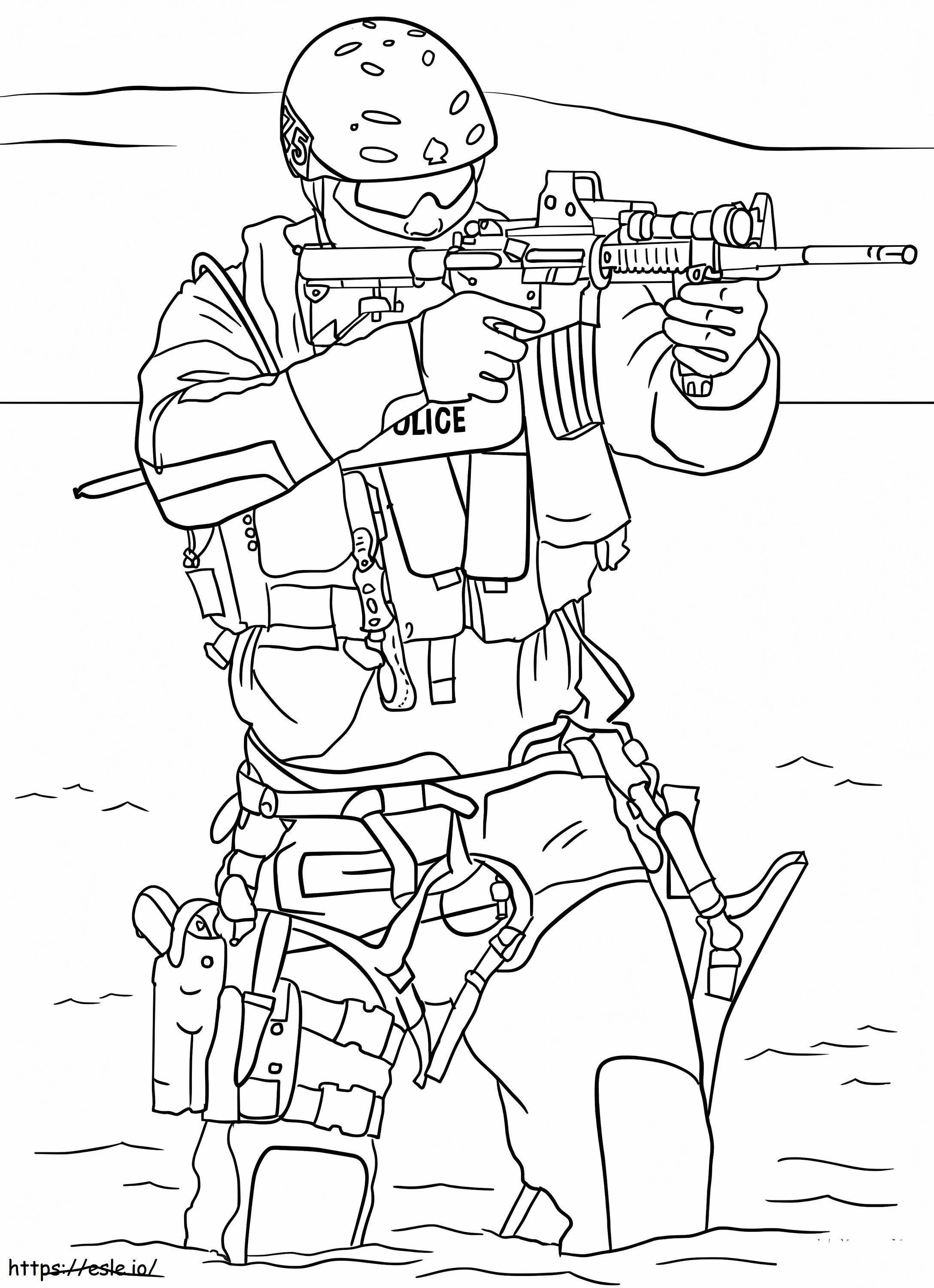When it comes to law enforcement, few units command as much respect and admiration as SWAT teams. The acronym SWAT stands for Special Weapons And Tactics, representing an elite group of officers trained to handle high-risk situations that go beyond the capabilities of regular police forces. These specialized units are called upon during critical incidents such as hostage rescues, barricaded suspects, and active shooter scenarios. Their presence signifies a commitment to ensuring public safety through advanced training and specialized equipment.
The role of SWAT teams has evolved significantly since their inception in the 1960s. Originally formed to respond to civil unrest and violent crimes, these units have become indispensable in modern policing. Today, they operate with precision and efficiency, employing cutting-edge technology and strategies to resolve dangerous situations while minimizing harm to civilians and officers alike. Understanding what SWAT stands for goes beyond knowing the letters; it involves appreciating the dedication and expertise required to serve in this demanding capacity.
Elite Forces | New York State Police
In the New York State Police, becoming part of a specialized unit like SWAT is not just about filling out an application. Officers must first prove themselves as sworn uniform troopers before requesting assignment to these elite teams. This ensures that only those with proven experience and skills can join. The rigorous selection process highlights the importance placed on both physical capability and mental fortitude when dealing with high-stakes operations.
Specialized assignments within the force require officers to undergo extensive additional training tailored to specific roles. Whether responding to hostage situations or executing high-risk warrants, these professionals are prepared for any challenge. Their ability to adapt quickly under pressure makes them invaluable assets in maintaining order across diverse environments.
Beyond tactical expertise, members of these units often participate in community outreach programs aimed at building trust between law enforcement and citizens. By fostering open communication channels, they help create safer communities where everyone feels protected.
High-Risk Response Teams
The SWAT Team specializes in handling situations that pose significant risks to public safety. These include serving high-risk search and arrest warrants, managing incidents involving barricaded suspects, conducting hostage rescues, and neutralizing threats posed by active shooters. Each operation demands meticulous planning and execution, leveraging the team's advanced weaponry and tactical knowledge to achieve successful outcomes.
Training for SWAT officers focuses heavily on developing skills necessary for resolving complex scenarios effectively. From learning how to breach fortified structures to mastering negotiation techniques with hostile individuals, every aspect of their preparation aims at enhancing their readiness for real-world challenges. Regular drills and simulations ensure that they remain sharp and capable at all times.
In addition to direct intervention efforts, SWAT teams also play crucial supporting roles within broader law enforcement operations. They assist other units by providing backup during large-scale events or emergencies requiring coordinated responses from multiple agencies. Through collaboration and shared expertise, they contribute significantly towards strengthening overall security measures.
Community Safety Initiatives
A recent incident involving an armed standoff at Butler Plaza Walmart demonstrates the effectiveness of SWAT units in resolving potentially deadly encounters peacefully. Local law enforcement successfully arrested a woman who had fired shots after hours of negotiations facilitated by skilled negotiators working alongside tactical personnel. Such instances underscore the importance of having well-trained teams ready to intervene swiftly whenever danger arises.
During standoffs or similar crises, SWAT teams prioritize civilian protection above all else. By evacuating nearby homes and businesses, they reduce collateral damage risks while concentrating resources on stabilizing volatile conditions. Their strategic approach balances assertiveness with caution, aiming always to preserve life wherever possible.
Furthermore, engaging directly with communities helps build stronger relationships based on mutual understanding and cooperation. When people see firsthand how committed these officers are to safeguarding their welfare, trust naturally grows, leading to more collaborative partnerships moving forward.
Origins Of Tactical Units
The origins of SWAT trace back to the turbulent 1960s when urban violence necessitated new approaches to policing. Initially formed by volunteers drawn from various ranks within departments, early SWAT members brought valuable military backgrounds into play. Over time, structured recruitment processes emerged, emphasizing both technical proficiency and psychological resilience among candidates.
As society continues evolving, so too do the demands placed upon SWAT units. Modern teams incorporate lessons learned from past experiences along with emerging technologies to stay ahead of ever-changing threats. Continuous education remains key to keeping pace with contemporary issues affecting public safety.
Today, SWAT represents far more than its original purpose—it embodies a culture dedicated to protecting lives through innovation and teamwork. As long as there exist circumstances requiring extraordinary measures, these brave men and women will stand ready to protect and serve.
Tactical Support Across Departments
Seattle’s SWAT unit exemplifies how essential these teams are in supporting other divisions throughout the department. Beyond executing high-profile missions, they routinely collaborate with colleagues across functions, offering specialized assistance during routine investigations or large gatherings. Their involvement extends beyond traditional boundaries, reinforcing interdepartmental cohesion.
Much of what SWAT accomplishes involves facilitating smoother workflows for fellow officers. For example, providing surveillance support during drug raids allows narcotics investigators greater focus on gathering evidence without worrying about immediate dangers. Similarly, securing perimeters during protests enables patrol officers to concentrate better on crowd management tasks.
This symbiotic relationship benefits everyone involved, enhancing overall operational efficiency and effectiveness. It showcases the versatility inherent in SWAT's mission, proving that even behind-the-scenes contributions carry immense weight in achieving desired results.

